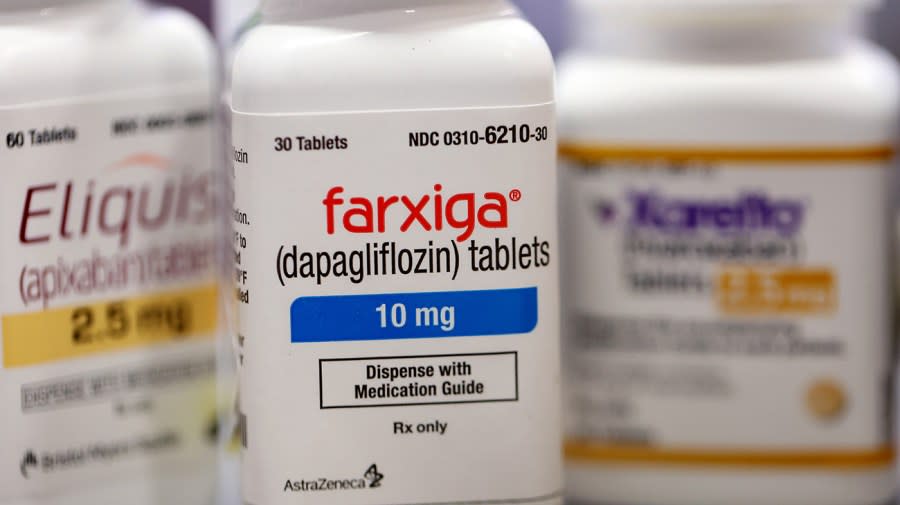Pharma execs tell investors Medicare negotiations won’t have a big impact

Presented by Express Scripts by Evernorth —
{beacon}
|
For the latest news, weather, sports, and streaming video, head to The Hill.

Presented by Express Scripts by Evernorth —
{beacon}
|
For the latest news, weather, sports, and streaming video, head to The Hill.


AstraZeneca CEO Pascal Soriot joined Yahoo Finance to discuss the company's earnings today.

Insurance giants have a bigger stake in this year’s presidential election after recent moves by the Biden administration cut into the profitability of Medicare Advantage plans.

Mike Tomlin said Russell Wilson is currently the Steelers' QB1.

TikTok's fate in the U.S. looks uncertain after President Joe Biden signed a bill that included a deadline for ByteDance, TikTok's parent company, to divest itself of TikTok within nine months or face a ban on distributing it in the U.S. Ivan writes about how the impact of TikTok bans in other countries could signal what’s to come stateside. California drones grounded: In more Amazon news, the tech giant confirmed that it's ending Prime Air drone delivery operations in Lockeford, California.

"When an investor passes on you, they will not tell you the real reason," said Tom Blomfield, group partner at Y Combinator. Blomfield should know - he was the founder of Monzo Bank, one of the brightest-shining stars in the UK startup sky.

Expert advice comparing the 2024 Chevrolet Colorado and 2024 Ford Ranger's power, towing, mpg, safety, price and specs, including the Raptor and ZR2.

Jordan Travis was a fifth-round pick and a good value for the Jets.

Chelsea's loss to Barcelona in the Women's Champions League semifinals came with one positive side effect, from an American perspective: Emma Hayes will take the USWNT head coaching job a week sooner.

Google filed a motion on Friday in a Virginia federal court seeking summary judgment for the Department of Justice's antitrust case against it. The DOJ sued Google at the beginning of 2023 for alleged monopolistic practices.

The controversial politician revealed in her new book that she killed her dog.

There haven't been many punters drafted in the fourth round or higher like Tory Taylor just was. Chicago's No. 1 overall pick welcomed him in unique fashion.

Amazon shoppers say the flowy number elicits 'so many compliments.'

Givebutter started in a George Washington University dorm room in 2016 as a software solution to make nonprofit fundraising more transparent and fun. Eight years later, the company is profitable and it just raised $50 million to scale as momentum for nonprofit-focused startups appears to be growing. Friedman told TechCrunch that regardless of the size or scope of the organization he was fundraising for, they all had the same problem: They all used a disjointed mix of one-solution tech software that didn't really make the process better and often came with hidden fees.

This flowy frock also has pockets and can be worn for a day out, to dinner and more.

Earnings presentations from four of the biggest tech companies in the world showed two very different visions of AI: the moonshot and the incremental gains.

Everything need to know about the spread of avian influenza, aka bird flu, in the U.S.

Over the last five years, the workplace has changed, and along with it, the way job seekers should write resumes.

Wilson won both the Bednarik and Butkus awards at NC State last season.

The combo of retinol, collagen, and hyaluronic acid help restore a youthful look to skin above the collarbone, fans say.

"Sure, winning battles and matches in more difficult modes will feel more rewarding, but not every gaming experience has to be a challenge."